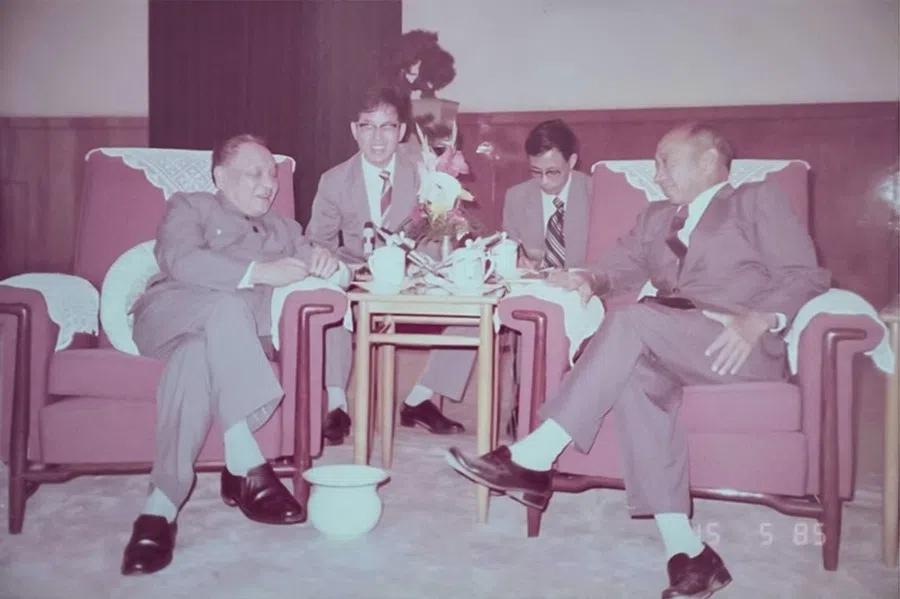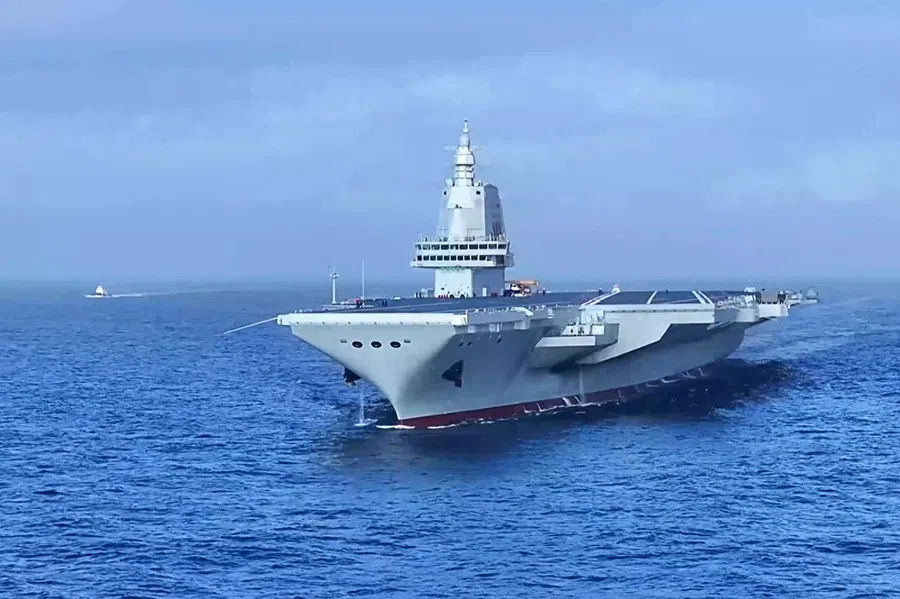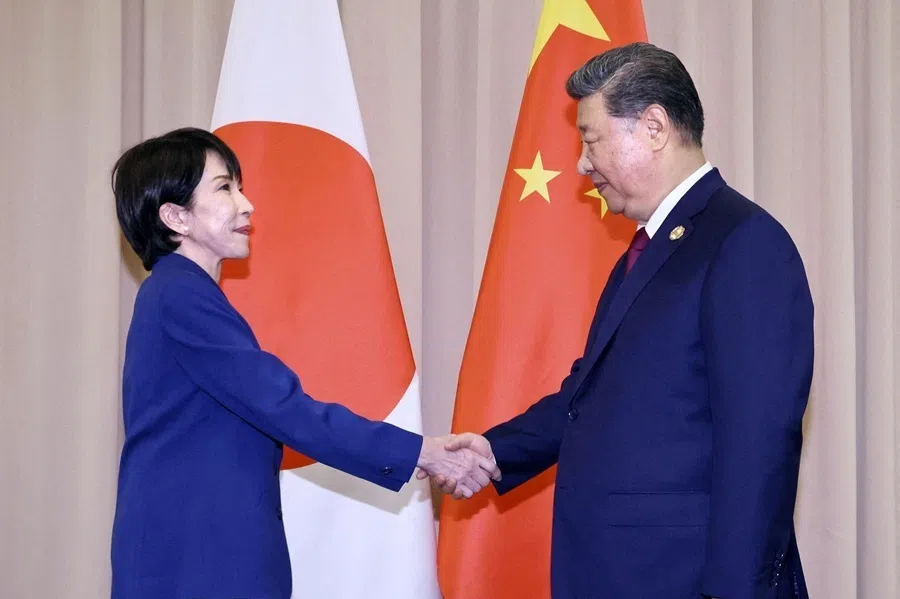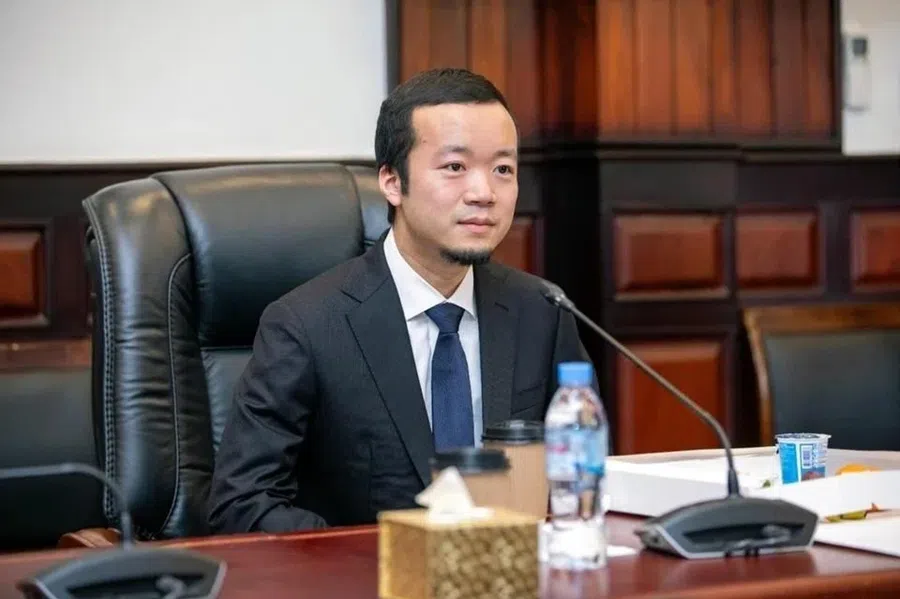Taiwanese commentator: Lee Kuan Yew saw reunification as inevitable
Years ago, Singapore's late founding Prime Minister Lee Kuan Yew said that cross-strait reunification was a matter of time and that its fate was sealed a long time ago. Taiwanese commentator Chen Kuohsiang finds such an assessment insightful, concluding that Taiwan would do well to avoid leaning too much towards the US and becoming too reliant on it for security.
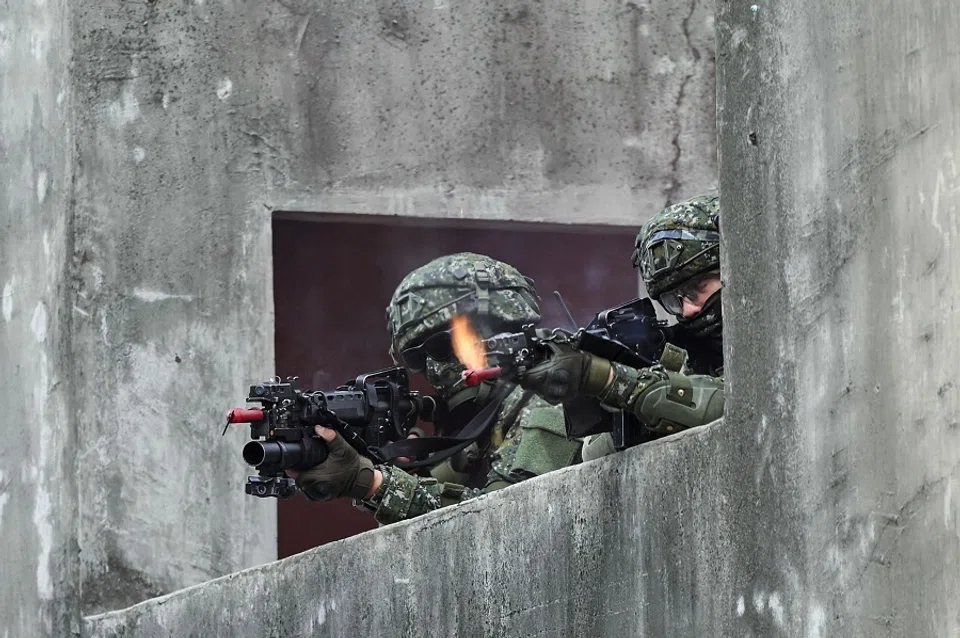
Following US House Speaker Nancy Pelosi's visit to Taiwan, the People's Liberation Army (PLA) conducted live-fire military exercises in a "quasi-lock down" of the island. Taiwan and the US did not counterattack, while the Chinese Communist Party (CCP) gloated about the "new status quo" it had created of being able to conduct military exercises at its whim.
China believes that a major step has been taken towards reunification, but the US has said that it will not accept, shrink from or give in to China's presumptuous actions, and has recently sent two warships through the Taiwan Strait. Clearly, the military exercises have revealed mainland China's intentions of military reunification, which have seen real progress.
"The future of Taiwan is not determined by the wishes of the people of Taiwan." - Lee Kuan Yew
Words from Singapore's founding father
Singapore's founding Prime Minister Lee Kuan Yew had predicted this situation. He said in the book One Man's View of the World, "Reunification between Taiwan and the Mainland is a matter of time. No country can prevent it. Taiwan's international fate was, in fact, sealed a long time ago at the Cairo Conference in 1943..."
Most Taiwanese cannot fathom this statement and are hopeful for their version of reality because reunification goes against their will. According to some polls, over half of the Taiwanese want independence for Taiwan. But can the subjective hopes of the Taiwanese people change objective developments?
In Lee's view, the lack of will of the people will not stop reunification and surveys are irrelevant because "the future of Taiwan is not determined by the wishes of the people of Taiwan. It is determined by the reality of the power equation between Taiwan and China and whether the Americans are prepared to intervene in the situation. It's not taking a straw poll..."
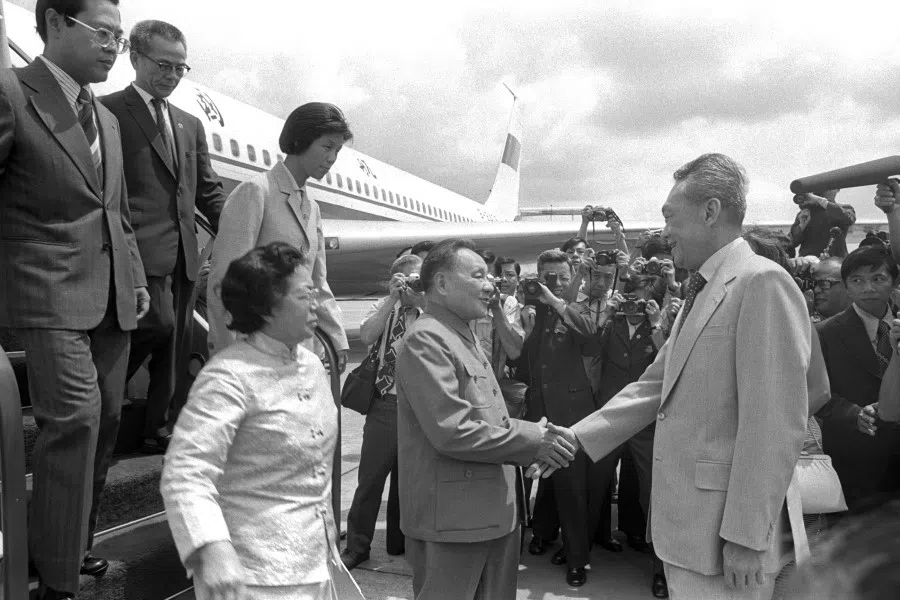
As for whether the US would be able to block reunification, Lee said that the pro-independence camp's hopes of relying on the US would not materialise, because US influence in Taiwan would decline; besides, the US would not want to fight with China over Taiwan's independence. In contrast, the CCP will not back down on Taiwan as a part of China, and so "even if China loses the first fight, it will come back for the second, third, and fourth, until it wins".
The DPP's reliance on the US
Lee Kuan Yew's assessment is insightful. With a growing gap in strength and military power, Taiwan can only rely on the US in seeking independence or resisting the CCP's pressure for reunification. But does the US really have the resolve or capability to support Taiwan?
The latest issue of Foreign Policy does not believe so. A commentary titled "Taiwan Can't Rely on 'Daddy America' to Solve Its Problems" says, "The seeming complacency and inability to take significant action to improve national self-defence is unfortunately largely due to a reliance on 'Daddy America' to come to Taiwan's aid quickly if it is attacked."
In fact, Taiwan's reliance on US politicians' visits to deter the CCP, and on US military intervention when something happens, is plain wishful thinking. In Lee's words, "Emphasising the island's separateness from China... will not change the outcome of eventual reunification. All it does is make it more painful for the Taiwanese when reunification actually happens."
Is this "more painful" situation just a prediction, or an imminent, cruel reality? Most in Taiwan would hope this is just a subjective prediction that will not be realised. A recent poll shows that 48.5% of people in Taiwan believe that the US will send troops if the CCP attacks Taiwan, while more than 37.4% believe otherwise. Interestingly, there are vastly different views among supporters of various political parties - 65% of Kuomintang (KMT) supporters believe that the US will not send troops, while 81.6% of Democratic Progressive Party (DPP) supporters believe it will.
Instead of being a deterrence, the CCP's military exercises increased the Taiwanese people's resentment and eroded their inclination towards reunification.
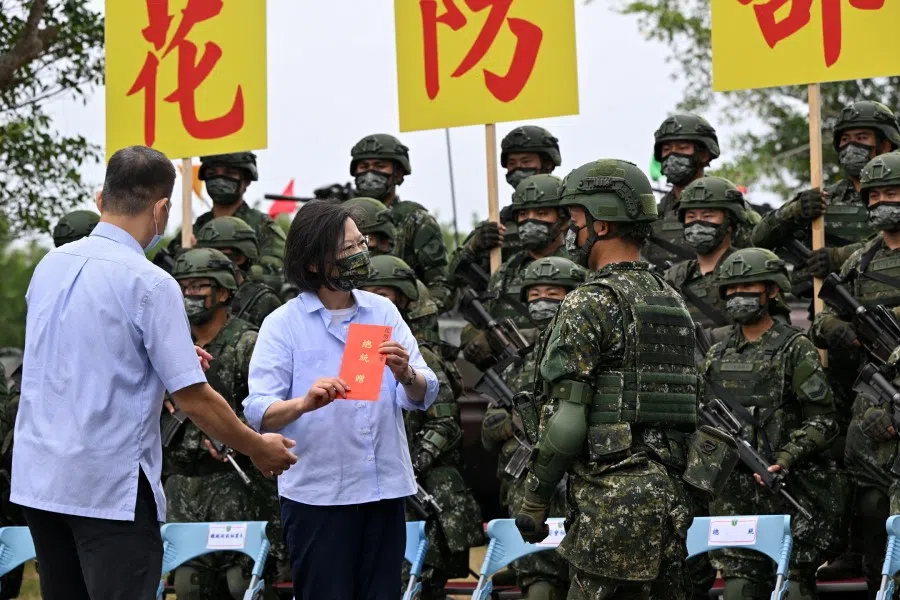
Evidently, most DPP supporters believe that the US's strong military will defend Taiwan, and there is no need to worry that the CCP will take military action against Taiwan, or to heed China's warnings that relying on the US will not end well.
With this mindset, the poll shows that only 11.8% of people currently support reunification, 25.7% of people think the status quo should be maintained, and more than half approve of independence. Instead of being a deterrence, the CCP's military exercises increased the Taiwanese people's resentment and eroded their inclination towards reunification.
... the DPP government is also going on a fantastical foray - it wants the people to believe that its anti-China moves are wise and just, and that it can stand up to China's threat of military reunification...
Middle-ground policy
In the face of Beijing's tightening set-up for military reunification, many in Taiwan refuse to accept the reality or the outcome, and would rather numb themselves with an Ah Q spirit (in Lu Xun's novella The True Story of Ah Q, Ah Q is a fictional character who thrives in "spiritual victories").
To ensure the people's support for its policies, the DPP government is also going on a fantastical foray - it wants the people to believe that its anti-China moves are wise and just, and that it can stand up to China's threat of military reunification, with "like-minded" countries defending Taiwan, so there is no need to worry about China's threat.
Encouraged by such optimism, very few Taiwanese would consider Lee's prediction of reunification as writing on the wall, much less a warning. Since Lee's "prophecy" cannot be faced rationally, the inexorable path of history will not be smooth, and Taiwan may eventually be forced into the "more painful" reunification process.
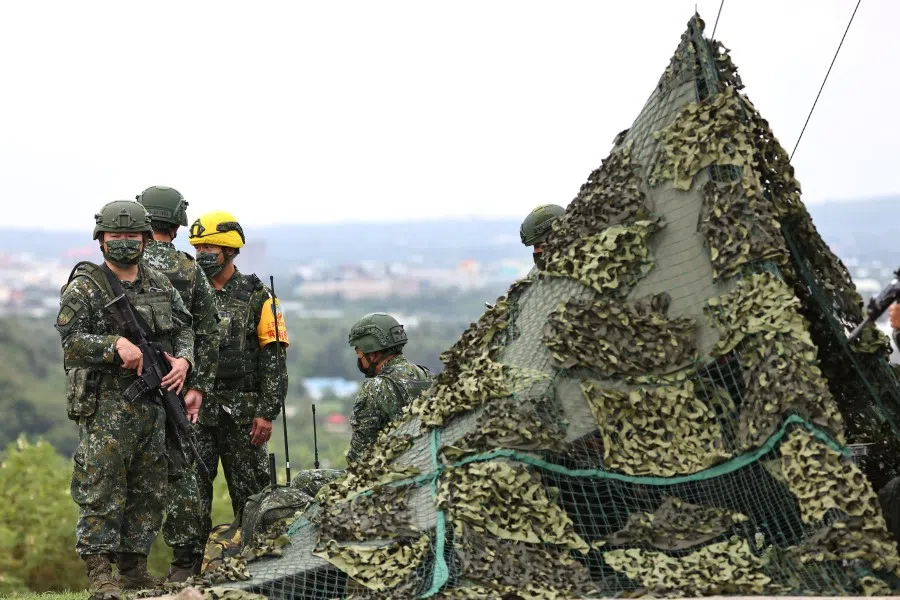
The Taiwanese people need to open their eyes to the world, and recognise that the gap between the national strength of the US and China is shrinking, and the CCP is finding it increasingly urgent to resolve the Taiwan issue in order to oppose the US's undermining of the "one China" policy and using Taiwan to contain China.
If Taiwan cannot shift to a more balanced position, it will accelerate the reunification process and strengthen the use of force.
Taiwan can delay the reunification process and reduce the pain. Right now, the DPP's pro-US, anti-China stance is necessary, but leaning too much to one side and willingly becoming a strategic pawn for the US has incensed Beijing to subdue Taiwan. If Taiwan cannot shift to a more balanced position, it will accelerate the reunification process and strengthen the use of force. In the end, the Taiwanese people are the ones to suffer.
With the strategic opposition between China and the US intensifying, Taiwan has been reliant on arms sales from the US due to security considerations. While it cannot be friendly with both the US and China, it should avoid going to either extreme - shifting to an appropriate middle ground is the best policy.
In this sense, Singapore's wisdom in not taking sides is worth considering. Singapore Prime Minister Lee Hsien Loong made it clear that the US-China rivalry is inevitably affecting all countries in Asia, and while it is natural for some countries to be closer to one side or the other, "most countries would prefer not to be forced to choose between the US and China".
He added that there will be no good outcome if Asian countries are split between two camps, each siding with one or the other. Clearly, Taiwan can no longer lean to just one side and consider it a form of security and protection.

